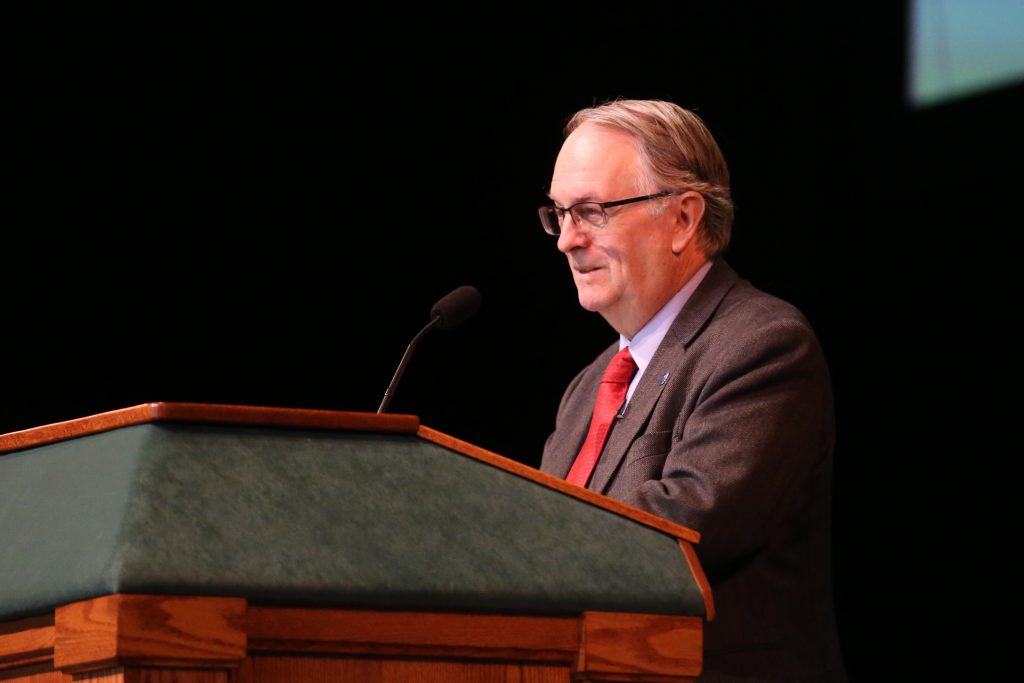
Binghamton University is a finalist to receive $100 million in funding for a battery production initiative.
Part of the Build Back Better Act, the $100 million is part of a total of $1 billion in funding for a grant under the Build Back Better Regional Challenge, where 20 to 30 regional coalitions will receive funding for their projects that economically boost an industry sector. BU is one of the 60 finalists that could receive the grant if selected.
BU’s New Energy New York (NENY) proposal, spearheaded by M. Stanley Whittingham, distinguished professor of chemistry, received $500,000 in funding to develop the proposal. NENY aims to create a manufacturing hub in upstate New York, with the first Lithium-Ion gigafactory opening in Broome County. NENY projects that by opening the factory, it will create around 8,000 jobs in the county over the next 10 years.
In a Feb. 24 BingUNews article, BU President Harvey Stenger had said the designation of BU’s proposal as a finalist in the competition would have effects through the local community.
“This is a big deal,” Stenger said. “It’s an exciting and historic time for [BU] and for the Southern Tier, as well as the Finger Lakes region of upstate New York. The [NENY] coalition marks the next step toward making our region a national and international leader in the next generation of battery research, design, manufacturing and workforce development.”
The NENY proposal said it would allocate the grant into five different aspects of its plan. If won, $30 million will be invested into building BATTERY-NY, a technology development and manufacturing center led by Whittingham, and $20 million will be put toward workforce development and a curriculum for different job levels’ training. With these funds, certification will also be developed along with identifying any needs of the energy storage ecosystem and addressing it accordingly. With the remainder of the grant, $10 million will be invested into minimizing environmental risks and supply chain development, with the final $15 million put toward innovation and entrepreneurship programs, which involves BU’s Acceleration of Cleantech Entrepreneurial and Economic Development.
Per Stromhaug, associate vice president for innovation and economic development, said that if BU receives the funding for the proposal, it will benefit both BU with student retention and Binghamton with an increase in workforce participation, indirectly creating opportunities for other businesses and benefiting the local economy.
Stromhaug also discussed the actions BU would take should they receive the funding, which includes convening with the 13 coalition members leading each part of the programs being created.
“To get this started, we will likely convene all our coalition members, other community partners and supporting companies in Binghamton similar to what we did in February to discuss how to best implement the programs, and inform and get advice from the community,” Stromhaug said.
Jenifer Weng, an undeclared freshman, said BU should move forward with the initiative, given the University’s effects on the community.
“I feel that the NENY proposal is very beneficial because there’s a clear difference in the quality of life that University students have and the people in Broome County have,” Weng said. “[BU] has a moral responsibility to help the community by providing means of improving the economy, which the proposal would do, as the University has also gentrified the neighborhood. I can’t see a downside to improving the economic growth of the community and the influx of jobs just means greater things for the larger community.”
Alaina Brown, a sophomore majoring in integrative neuroscience, said she supported the NENY proposal and its potential benefits for BU.
“I definitely do think [BU] should get the funding,” Brown said. “The pandemic has really hurt the greater Binghamton area, and with the addition of the proposed battery manufacturing ecosystem, this would aid in the economic revival of the area. There are a lot of residents in the Southern Tier who are at the poverty level, so projects like this can improve the lives of these people drastically.”


